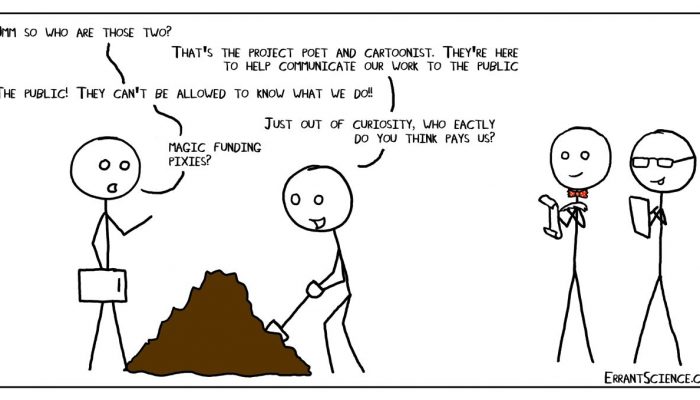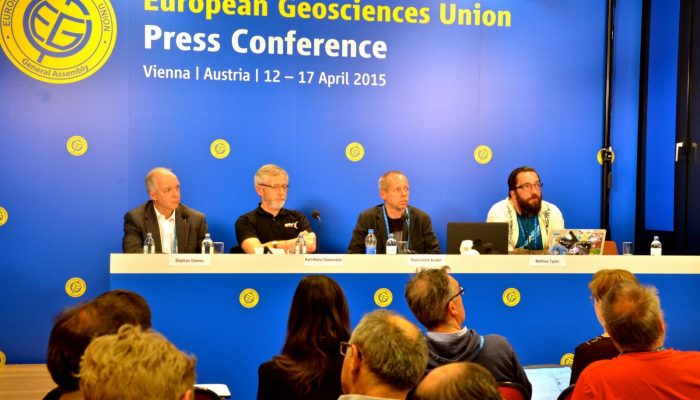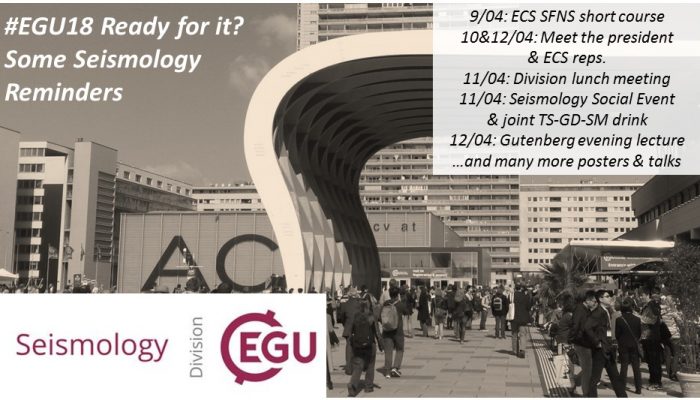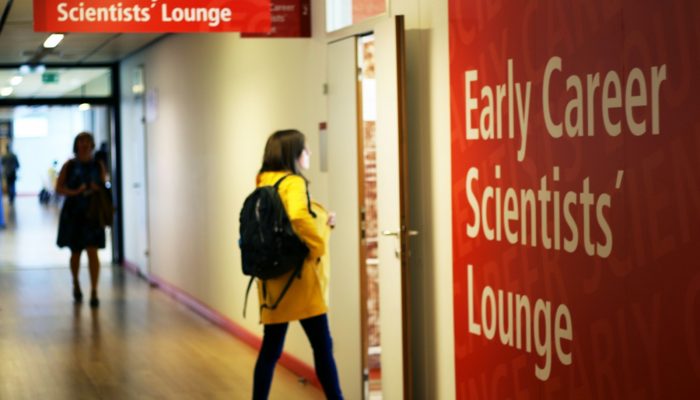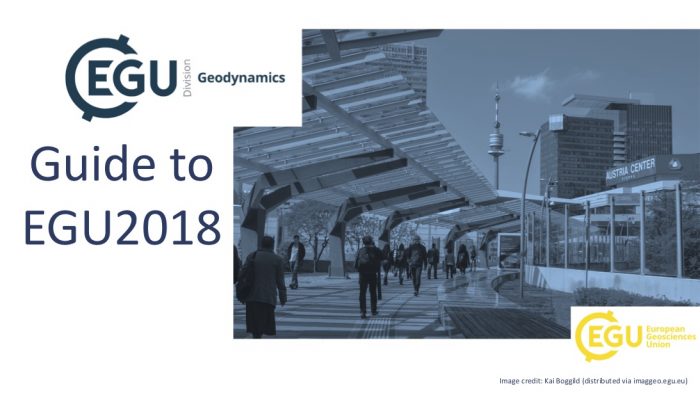For the first time, the General Assembly will be documented by EGU’s very own artists in residence! Sam Illingworth, Science Communication Lecturer at Manchester Metropolitan University (UK), and Matthew Partridge, Senior Research Fellow at Southampton University (UK), have been busy this week producing poems and cartoons to share their conference experiences and communicate science. Why not ...[Read More]
GeoLog
Photo Competition finalists 2018 – who will you vote for?
The selection committee received over 600 photos for this year’s EGU Photo Competition, covering fields across the geosciences. The fantastic finalist photos are below and they are being exhibited in Hall X2 (basement, Brown Level) of the Austria Center Vienna – see for yourself! Do you have a favourite? Vote for it! There is a voting terminal (also in Hall X2), just next to the exhibit. The resul ...[Read More]
GeoLog
At the Assembly 2018: Monday highlights
Welcome to the 2018 General Assembly! This is the first full day of sessions and there’s a feast of them to choose from. Every day we’ll be sharing some super sessions and events at EGU 2018 here on GeoLog and you can complement this information with EGU Today, the daily newsletter of the General Assembly. Union-wide Events Of particular importance today is the Union’s Plenary Meeting (PCN2) at 12 ...[Read More]
Biogeosciences
Welcome to EGU 2018!
Dear all BG members, welcome to EGU 2018! Remember our annual BG Division meeting that will be held on Thursday, April 12, 12:15-13:15 in Room L2. Enclosed the Agenda. This year, the Vladimir Ivanovich Vernadsky Medal of our Division is awarded to Antje Boetius. All invited at the Medal Lecture on Tuesday, April 10, 14:00–15:00 in Room C See you all this evening for the ice breaker at the Opening ...[Read More]
Cryospheric Sciences
Image of the Week – Edible cryosphere at EGU 2018!
It is time again for the annual family meeting of the European Geosciences Union! A lot of interesting talks, posters and events are waiting for you! But this also means you will have to use your brain a lot to concentrate and understand what is going on… Every year, around 15,000 geoscientists meet in Vienna for the EGU General Assembly (see our guide to navigating EGU 2018). It is an exciting ev ...[Read More]
GeoLog
EGU 2018: Follow the conference action live!
Earlier this month we shared a post on how you can keep up to date with all the science being presented at the General Assembly via our social media channels. This week we share with you how you can tune into the conference action, live! Many of the EGU General Assembly highlights will be streamed live, so if you can’t make it to Vienna this year, you can still watch sessions like the Union Sympos ...[Read More]
Seismology
Some Seismology reminders for EGU2018 General Assembly
With only 2 days left for the kick off of the annual European Geosciences Union General Assembly (2018), here is a quick-list to go through in time for EGU. First, read this page for information concerning activities for Early Career Scientists at the GA: https://www.egu.eu/young-scientists/at-the-assembly/ EGU2018 mobile app The EGU2018 mobile app is now available. Go to http://app.egu2018.eu to ...[Read More]
GeoLog
What’s on for early career scientists at the Assembly in 2018
This year, there’s a great line-up of early career scientist (ECS) sessions at the General Assembly. Not only that, but there are opportunities to meet those that represent you in the Union, get to know other ECS in your field, and make the most of both the scientific and social sides of the conference… Networking First up for ECS is the icebreaker event during the opening reception on the Sunday ...[Read More]
Geodynamics
Making the most of the EGU General Assembly 2018 as a Geodynamicist and Early Career Scientist
Are you still deciding on how to best fill your EGU General Assembly program next week in Vienna? Wondering what is on offer specifically for the Geodynamics (GD) early career community? Our EGU GD Early Career Scientist representative, Adina Pusok (Scripps, UC San Diego), shares some planning tips and event highlights for the big week ahead. We are looking forward to seeing you there! The EGU Gen ...[Read More]
GeoLog
Blogs and social media at EGU 2018 – tune in to the conference action
With hundreds of oral presentations, PICO sessions and poster presentations taking place each day, it can be difficult to keep up with everything that is on offer during the General Assembly. As well as finding highlights of interesting conference papers, lectures and workshops in the daily newsletter at the General Assembly, EGU Today, you can also keep up to date with all the conference activiti ...[Read More]

